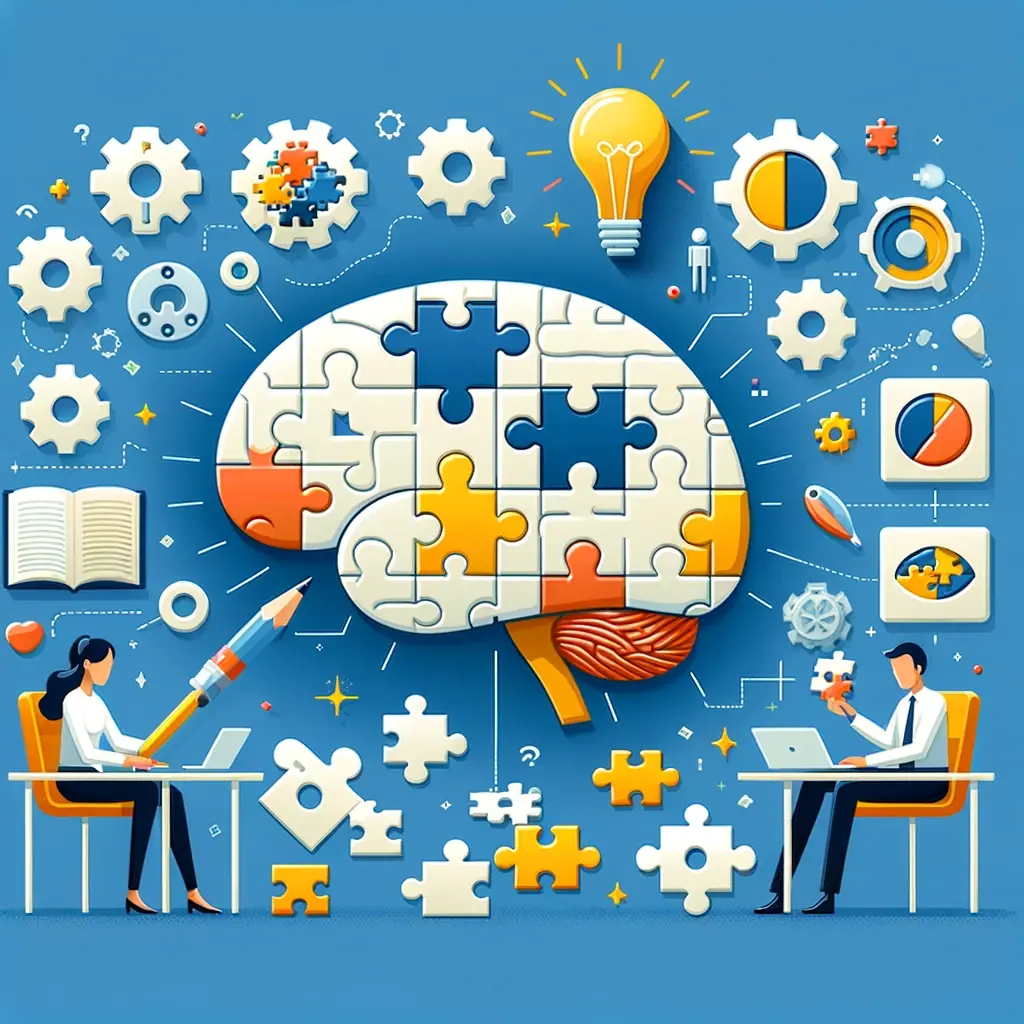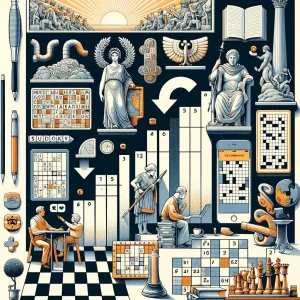How Puzzling Improves Cognitive Function
Introduction
Have you ever wondered why you feel so satisfied after completing a challenging crossword or solving a tricky Sudoku puzzle? There’s more to it than just the joy of accomplishment. The act of puzzling taps into complex cognitive processes, offering benefits that go far beyond simple entertainment. Let’s dive into the fascinating world of brain games and understand how they can positively impact our cognitive functions.
The Brain-Boosting Power of Puzzles
Puzzles are like a gym workout for your brain. Engaging with a puzzle requires a blend of cognitive skills, including memory, attention, logic, and problem-solving abilities. When you solve a puzzle, you’re essentially giving your brain a full-body workout!
Memory Enhancement
Memory plays a crucial role in solving puzzles. Take, for example, a jigsaw puzzle. As you sort through different pieces, you’re exercising your short-term memory to remember shapes and colors. This exercise strengthens neural connections, enhancing memory function. Crossword puzzles, on the other hand, tap into your long-term memory, recalling words, facts, or even trivia.
Improved Problem-Solving Skills
Puzzles inherently pose a problem to be solved. Whether it’s figuring out the next number in a Sudoku sequence or determining the correct placement of a crossword clue, puzzles force your brain to think critically and devise solutions. This process is invaluable in enhancing your problem-solving skills, which are essential in our daily lives.
Delaying Cognitive Decline
Studies have shown that engaging in mentally stimulating activities like puzzles can delay the onset of cognitive decline associated with aging. Regularly challenging your brain with puzzles keeps it active and agile, much like how regular physical exercise keeps the body fit.
Enhancing Attention to Detail
Puzzles demand a high level of attention to detail. Missing a single piece in a jigsaw puzzle or a clue in a crossword can throw the whole game off. This level of precision fosters greater attention to detail in other areas of life as well.
The Social Aspect of Puzzling
While often seen as a solitary activity, puzzling can be a social endeavor. Group puzzle-solving sessions can be a great way to bond with family and friends while benefiting from collaborative problem-solving. It’s not just about competing but also about learning from each other’s strategies and perspectives.
Stress Reduction
Engaging in puzzles can also be a form of meditation. The concentration required to solve a puzzle allows you to detach from daily stressors and enter a state of calm. It’s a productive escape that offers mental relaxation and rejuvenation.
Puzzles in the Digital Age
In today’s digital world, puzzles have taken on new forms. From apps to online platforms, digital puzzles offer the same benefits as traditional puzzles, with the added convenience of being accessible anytime and anywhere.
Conclusion
The next time you pick up a puzzle book or open a puzzle app, know that you’re doing more than just passing the time. You’re boosting your brain power, enhancing your memory, refining your problem-solving skills, paying attention to details, and maybe even connecting with others all while reducing stress.
At Evan Hollis, we believe in the power of puzzles to not only entertain but also to enrich. That’s why we meticulously curate our collections, ensuring they offer the perfect blend of challenge and enjoyment. Whether you’re a seasoned solver or a curious newcomer, we invite you to explore the world of puzzles and experience the numerous benefits they bring to your intellectual life.
Remember, every puzzle solved is a step towards a sharper, more engaged mind. So, the next time you’re faced with a puzzle, embrace it with enthusiasm, knowing that with each piece you place, each number you fill in, and each word you find, you’re not just solving a puzzle; you’re nurturing your most valuable asset – your brain.


